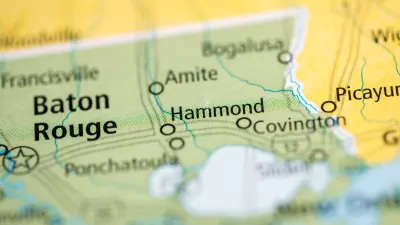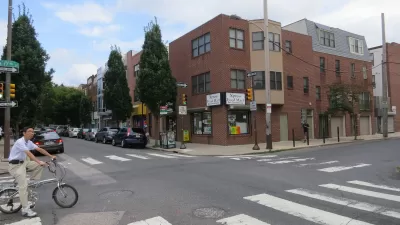The YIMBY movement seems to be gaining steam as more the country deals with growing housing prices and increasing numbers of people experiencing homelessness. Recent research reveals where pro-development forces are most likely to call home.

The past decade or so has seen a string of planning and zoning reforms, backed by a growing coalition of pro-development forces sometimes referred to as YIMBY groups. The political and cultural accomplishments of these pro-development groups are, in effect, reversing a century-long planning status quo that has mostly favored single-family zoning and automobile-oriented sprawl.
“The emergence of such visible and vocal pro-housing groups has become a defining feature in land use debates over the past several years—a counterbalance to long-standing homeowners who oppose new housing, often referred to as NIMBYs, for ‘Not In My Backyard,’” according to an article by Cassidy Pearson and Jenny Schuetz for Brookings.
The source article provides access and insight into a recent brief that documents where these YIMBY pro-development groups have gained the most prominence. The article suggests that more research into where, how, and why pro-housing groups emerge is relevant to economics, political science, sociology, and urban planning.
“More than 140 of these groups existed as of January 2022, although their size and activity level vary. Nearly 60% of states (29) have at least one active group, with the highest concentrations in California, Massachusetts, Texas, and Washington,” write Pearson and Schuetz. These groups tend to coalesce around local jurisdictions, and they are more common on the West Coast, according to the article.
More details on the findings and methodology are included in the source article, linked below.
FULL STORY: Where pro-housing groups are emerging

Planetizen Federal Action Tracker
A weekly monitor of how Trump’s orders and actions are impacting planners and planning in America.

Maui's Vacation Rental Debate Turns Ugly
Verbal attacks, misinformation campaigns and fistfights plague a high-stakes debate to convert thousands of vacation rentals into long-term housing.

Restaurant Patios Were a Pandemic Win — Why Were They so Hard to Keep?
Social distancing requirements and changes in travel patterns prompted cities to pilot new uses for street and sidewalk space. Then it got complicated.

Charlottesville Temporarily Has No Zoning Code
A judge ordered the Virginia city to throw out its newly revised zoning code, leaving permitting for new development in legal limbo.

In California Battle of Housing vs. Environment, Housing Just Won
A new state law significantly limits the power of CEQA, an environmental review law that served as a powerful tool for blocking new development.

Boulder Eliminates Parking Minimums Citywide
Officials estimate the cost of building a single underground parking space at up to $100,000.
Urban Design for Planners 1: Software Tools
This six-course series explores essential urban design concepts using open source software and equips planners with the tools they need to participate fully in the urban design process.
Planning for Universal Design
Learn the tools for implementing Universal Design in planning regulations.
Heyer Gruel & Associates PA
JM Goldson LLC
Custer County Colorado
City of Camden Redevelopment Agency
City of Astoria
Transportation Research & Education Center (TREC) at Portland State University
Jefferson Parish Government
Camden Redevelopment Agency
City of Claremont





























